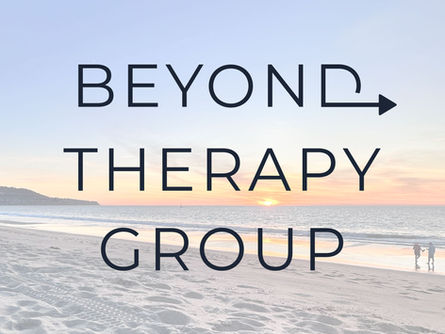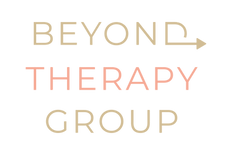July 4, 2025
Relational Therapy: How It Helps

At Beyond Therapy Group, we understand that healing happens in connection. Whether it’s with a partner, a parent, a close friend, or even your therapist, our relationships shape who we are. This is the foundation of Relational Therapy, a transformative approach to counseling that focuses on the quality and patterns of your relationships past and present to support emotional growth and healing.
In today’s fast-paced and often disconnected world, Relational Therapy offers a deeply grounding way to not only understand yourself better, but also to improve how you relate to others. This approach is rooted in the belief that our mental health is deeply intertwined with the relationships we’ve had since early childhood and the ones we carry into adulthood.
What Is Relational Therapy?
Relational Therapy is a form of psychotherapy that emphasizes the importance of relationships in psychological well-being. It draws from psychodynamic, humanistic, and attachment theories, and is particularly focused on how early interpersonal experiences (often with caregivers) influence the way we see ourselves and relate to others.
Rather than treating symptoms in isolation, Relational Therapy looks at patterns: how you communicate, how you react in conflict, how you handle closeness, and what internal beliefs drive your behavior in relationships. The therapy room itself becomes a safe space where these dynamics can be explored in real-time, often through the relationship between the therapist and the client.
At Beyond Therapy Group, our licensed clinicians are trained to attune to your emotional needs while helping you recognize the “relational templates” that may be shaping your world sometimes without your full awareness.
Key Goals of Relational Therapy
Relational Therapy focuses on:
- Bringing unconscious relational patterns to light
- Healing emotional wounds that stem from interpersonal experiences
- Increasing emotional awareness and communication skills
- Developing healthier, more fulfilling relationships
- Reclaiming a sense of self-worth and agency
This form of therapy doesn’t view people as “broken” or “disordered,” but rather as individuals navigating a web of complex relationships, often with outdated emotional strategies that once served a purpose.
How Does It Work?
In Relational Therapy, the therapeutic relationship is central. Your therapist will act as a mirror, a guide, and a co-explorer not a distant expert or authority figure. Through honest and empathetic dialogue, you and your therapist will work together to uncover patterns that show up in your relationships with others, and sometimes in your dynamic with your therapist as well.
These real-time interactions become a rich resource for change. For example:
- If you tend to withdraw when you feel vulnerable, your therapist might gently point that out in session, allowing you to become more aware of your defenses.
- If you often feel unheard or invalidated in your life, your therapist will prioritize deep listening and reflection to help heal that wound.
This level of interpersonal exploration can be incredibly empowering and reparative, especially for those who’ve experienced trauma, abandonment, or attachment disruptions.
Who Can Benefit from Relational Therapy?
Relational Therapy is particularly effective for individuals who:
- Struggle with anxiety, depression, or low self-esteem tied to relationship issues
- Have a history of childhood trauma or attachment difficulties
- Experience repeated conflict or distance in romantic or family relationships
- Want to improve emotional intimacy and communication
- Feel “stuck” in repetitive relationship patterns
- Are seeking more authenticity and fulfillment in their connections
This approach is also ideal for clients who are open to exploring their past and are willing to engage in a collaborative, introspective form of healing.
Why Relationships Matter in Mental Health
From birth, our brains are wired for connection. Our earliest relationships shape our sense of safety, our self-worth, and our ability to manage emotions. When those bonds are healthy and secure, we learn that we’re lovable and that our needs matter. When they’re not due to neglect, criticism, emotional unavailability, or trauma we may internalize beliefs like:
- “I’m not enough.”
- “If I get too close, I’ll get hurt.”
- “My needs are too much.”
- “People always leave.”
These internalized messages can persist into adulthood and show up in romantic relationships, friendships, work dynamics, and even the way we relate to ourselves. Relational Therapy helps you rework those early messages, replacing them with more compassionate and realistic beliefs.
How Relational Therapy Differs from Other Approaches
While many therapeutic modalities focus on problem-solving or cognitive restructuring (changing your thoughts), Relational Therapy goes deeper into how you experience yourself and others emotionally.
Rather than giving you advice or quick fixes, your therapist joins you in understanding the “why” behind your patterns and creates a space where change is felt, not just thought about.
Relational Therapy is less structured than Cognitive Behavioral Therapy (CBT) and more fluid than solution-focused approaches. It’s a dialogue, not a checklist. And it often brings about change that’s both profound and lasting, because it addresses the relational roots of distress rather than just the symptoms.
Real-World Impact of Relational Therapy
Clients who engage in Relational Therapy often report:
- Improved self-awareness and emotional resilience
- Stronger, more secure relationships
- Greater capacity for vulnerability and intimacy
- Reduction in chronic anxiety, depression, or shame
- Increased confidence and sense of personal agency
By building a safe and trusting relationship with a therapist, many clients experience what’s known as corrective emotional experiences moments when they feel seen, heard, and valued in a new way. These moments can ripple outward into other parts of life, creating real transformation.
What to Expect at Beyond Therapy Group
At Beyond Therapy Group, we believe therapy should feel relational, grounded, and empowering. We match clients with compassionate therapists who are trained in relational modalities and offer a warm, non-judgmental space for exploration.
Whether you’re navigating relationship challenges, emotional struggles, or simply want to understand yourself better, Relational Therapy can help you grow not just alone, but in connection with others.
Ready to Heal in Connection?
If you’re ready to experience the power of healing through relationship, our team at Beyond Therapy Group is here for you. We believe you don’t have to go it alone because real growth happens when we’re seen, supported, and understood.
Schedule a free consultation today and take the next step toward deeper self-awareness and more fulfilling relationships.
Recent Posts
